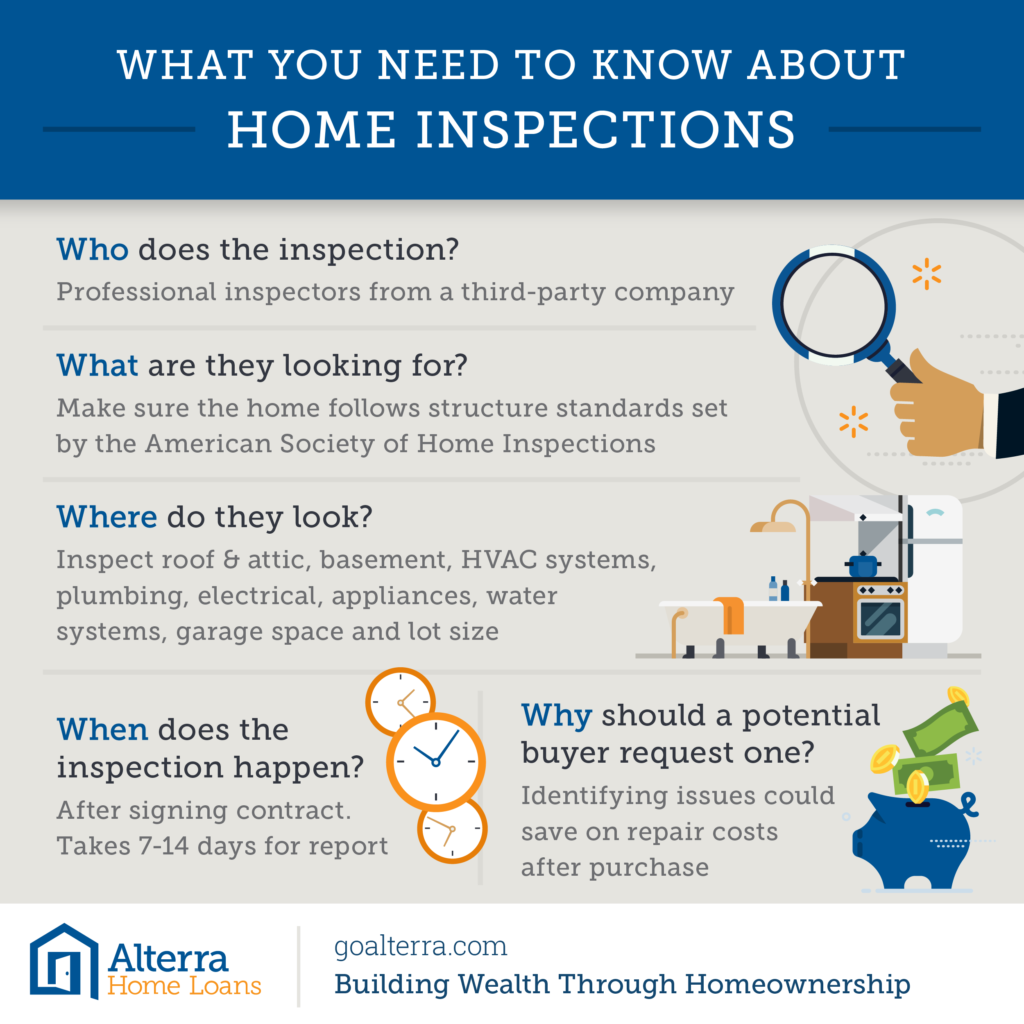Previous2 of 2
Additional Inspections
If there are additional concerns regarding a home or special circumstances, the buyer may wish to request the following inspections in addition to the home inspection:
- Lead Based Paint: If the home was built prior to 1978, this is extremely important to the health of the family.
- Termite & Pest Control: Termites and pests can bring the structure of any home down quickly. It is important for buyers to ask for this inspection and note that homeowner’s insurance does not typically cover termites. VA loans require a termite inspection in most states. The average termite inspection is around $100.
- Foundation Inspection: Averaging $300-$400, this inspection is completed by a structural engineer. This is usually only necessary if a home inspector notes a problem in their inspection.
- Lot Size Survey: These average between $300-$700 and verifies the size of the lot and if there are any easements to the property.
- Chimney Inspection: These are an absolute must in any home with a chimney present. A chimney requires internal inspection for any cracks and unforeseen issues. If this is not completed, there is a risk of major hazards within the home. These average $100-$250.
- Water Inspection: If the home is on a well system, it is suggested that the home receive a water inspection. The water should be tested for chemicals such as lead, cadmium and arsenic. The average water test is $150.
- Radon Test: This should be required if there is a concern from the home inspector that radon gas is present. This is an affordable test at $15-$25.
Additional Tips
- Seller’s Inspection: Some sellers will provide a home inspection completed by their own company. As a buyer, it is always best to bring in a third-party provider for this service in case of any undue persuasion whether intentional or unintentional.
- There Will Be Problems: Even new construction homes have minor issues on their home inspection. Home inspectors are there to nit-pick every inch of the home for issues. This is why it is critical for a buyer to be present during the home inspection to determine what is truly an issue for the buyer and what is trivial.
- Don’t Depend on the Seller: Smart sellers will not agree to fixing everything, but sellers should accommodate fixes that are within reason. Major issues will need to be negotiated through the selling price.

Previous2 of 2


